- Home
- Tim LaHaye
02 Thunder of Heaven: A Joshua Jordan Novel Page 15
02 Thunder of Heaven: A Joshua Jordan Novel Read online
Page 15
THIRTY-SIX
Union Beach, New Jersey
“We had to move. Very dangerous to stay in Clifton. Everything had to go.”
The Indonesian armed with an automatic weapon was trying to explain the change of plans to Dr. Kush Mahikindrani, the team leader for the New York attack. The Muslim nuclear physicist from India, whom everybody called “Dr. Kush Mahi,” was not happy.
“How do I know that the components weren’t damaged when you moved our operations?”
The Indonesian tried to assure him. “Don’t worry. We were very careful. With everything. Promise.”
Dr. Kush Mahi looked around the large machine shop. When he had driven to the new location, he scouted out the area. The shop was in Union Beach, New Jersey, not far from the sewage treatment plant. Suitable but not ideal. The original plan had been to assemble the small nuclear weapon in a much more remote area in Clifton, just a short drive from New York City. But not now. Union Beach was more than twenty miles from Manhattan as the crow flies. Driving the bomb into the city would be double or triple that distance. And the trip would be across state lines, and the route more complicated.
On the other hand, Dr. Kush Mahi wasn’t responsible to deliver the bomb. Only to put it together. The “thugs,” as he called the armed members of the terror cell, would drive it into the city and detonate it.
“I just don’t understand the need for the change,” he complained.
The nuclear engineer from Kenya spoke up in his thick British accent. “I can explain. There was some kind of dispute with the owner of the other building, a problem at the last minute. So they moved here.” After looking around, he added, “I think this will do. When I worked on the nuclear missiles for the British submarines, we had a space just about like this. More elaborate machining tools, but we don’t need those. Assembly should be fairly simple.”
Dr. Kush Mahi was not impressed. “Arming a nuclear device is never simple.” But then he stripped off his suit coat and added, “Let’s get to work.”
They walked over to the crates containing the nuclear components. They inspected the wooden boxes to see if they had been damaged in shipment. The containers were lined with high-grade titanium and synthetic lead, so any real damage would most likely occur if the containers had been dropped and the fragile contents disrupted.
Dr. Kush Mahi, satisfied that the boxes were not damaged, stood up after his inspection. No reason not to make himself at home, he thought.
“Is there any place to get good Indian food?”
The last address John Gallagher had for Ken Leary, his old buddy at the CIA, was an office in Washington, D.C., just off Capitol Hill. Gallagher wanted to catch up with him, so he flew into Reagan National Airport and headed into the city.
An hour later, as he sat in the back of the cab, he found himself in a traffic nightmare. Some kind of huge rally was taking place on the long grassy National Mall leading to the White House.
“What’s the deal?” Gallagher asked the driver.
The cabbie shook his head. “Always something going on at the Mall.”
Gallagher saw rows of banners. One said, “One Planet — One God — One Climate Mission.” Other banners showed a picture of Romanian ambassador Alexander Coliquin, along with his now-famous quote from his U.N. address: “The only earth we shall ever have.”
When they slowed to a stop, a young man in a blaze yellow vest came up to the cab armed with a stack of fliers. He tried to hand one to Gallagher through the cab window. Gallagher said no thanks, but he did ask the young man what was going on.
“We’re rallying to support the World Religious Coalition for Climate Control meeting here in D.C.”
Gallagher, never one to miss an opportunity, smirked and said, “Tell them to set the weather at seventy degrees and clear, with a slight breeze. That’s my favorite.”
The man in the vest gave him a funny look. “You really don’t know about this?”
“Naw, that’s why I asked.”
“This is the United Nations initiative on the climate crisis.”
“Crisis? Give me a break.”
“Man, where have you been? It’s all over the news. The figures just came out. We’re on the verge of a catastrophe.”
Gallagher gave a sardonic chuckle. “Yeah, little do you know.”
The man kept pitching. “Religious leaders from around the world are here: Hindus, Buddhists, Muslims, some High Church dude from England, an emissary from the pope. They’re all here, man, and for once they’re all singing from the same hymnbook. You know what they’re saying? Save the planet. Save the planet!”
“Funny,” Gallagher quipped, “that’s exactly what I’m trying to do.”
When Gallagher arrived at Leary’s office, it was empty. No sign of life. So he made a couple of phone calls and then a house call to CIA headquarters in Langley. He discovered that Leary had been transferred to Richmond, Virginia.
So Gallagher rented a car and headed south on I-95, crawling through traffic until he was closer to Fredericksburg and the pace picked up. Leary’s new office was inside an import-export shop called International Trading Cooperative. He recognized the faux setup and asked the pretend receptionist about meeting with Ken Leary. No, he admitted, he didn’t have an appointment. “But Ken Leary knows me, and this is absolutely urgent.”
After a few minutes, Ken walked out, took one look at Gallagher, and scowled, but out of professional courtesy he invited him into his office.
When the door closed, Leary explained, “I got transferred here. I used to be in the New York field office chasing terrorists and managing clandestine offshore operations. Now look at me! They got me working with Homeland Security monitoring things like international flights at the Richmond airport.” Leary pointed his finger at Gallagher. “And why am I talking to you anyway? You’re poison. Slipping you information when you were at the Bureau is probably what got me stuck down here in the first place.”
“Sorry.”
“That doesn’t cut it.”
“How about this. I’m really sorry — and if it weren’t about a suitcase nuke coming into the U.S. within your jurisdiction … hey, I wouldn’t be bothering you.”
Leary was looking at his wall clock and then shot back, “Oh, so you’re really sorry?” Then Leary stopped. He looked up and added, “What did you say?”
Gallagher said, “I mean I’m genuinely bummed about what happened to you — ”
“No, no,” Leary said, “not that.” He titled his head closer. “The other part … about a suitcase nuke …”
THIRTY-SEVEN
Ethan March had tried to connect with Deborah several times, but he only reached her voicemail. He left two messages. They weren’t returned. Then he took a chance and called the unlisted number at Hawk’s Nest that Deborah had given him. Abigail Jordan answered. She simply said, “Deb’s traveling with her father …” and didn’t elaborate.
After he hung up, Ethan thought back to his sense that Deborah’s mother had some doubts about him. He thought that was interesting, since her husband was the one who had known about Ethan’s screwups at McGill, and yet Joshua seemed to be willing to consider hiring him. Ethan had even come clean with Deborah about some of his dumber moves. In spite of that, Abigail was the cautious one.
Maybe it had something to do with the superreligious atmosphere that permeated the Jordan household — except for Joshua. They prayed before meals; Mrs. Jordan quoted the Bible; even Cal talked about his “spiritual journey” at the dinner table. Maybe Deborah’s mom only approved of Christian crusaders for her daughter.
Things started to add up when Ethan thought back to their picnic. They had traveled by horseback to Deborah’s favorite spot. After tying up the horses, they chatted as they ate lunch. Ethan could see that Deborah was different from the girls he flirted with in singles bars. Solid. Real depth. A great sense of humor. And beautiful. Oh, yeah.
Then the discussion got serious. Deborah looked h
im straight on. “So, you told me about flying that experimental F-35, getting the kinks out — when everything went wrong and you thought you were going to crash.”
“Yeah. I had my hand on the handle, ready to blow the ejection seat.”
“And if you did?”
“Then I’d have been in for an interesting ride. We simulated it in flight school, but when you’re up there going Mach two and things go south, man, it’s really different.”
“But what I mean is, so you eject … and then your chute doesn’t open. What then?”
“Well, first there’s the smaller one, the drogue that opens. Then the main chute.”
“And if neither one opens?”
“You die.”
“That’s it?”
“What do you mean?”
“Don’t you think about dying?”
“Of course.”
“Anything else? Thoughts about heaven? About God?”
“Sure, I guess, but not like you guys. Deb, you call yourself a Christian. You’ve obviously got a tight set of beliefs; you’re really strapped into that. But that’s not where I’m at.” Then he changed the subject. “Got any more fried chicken?”
Maybe that was a stupid dodge, but the more Ethan thought about it, the more he figured he was who he was. Why change?
Now, Ethan was driving to the unemployment office in Waltham, Massachusetts, the city he’d called home while he worked for Raytheon. As he drove, a sickening despair overcame him, a feeling of complete mission flameout. The thought of going on the public dole because he was unemployed made him want to vomit. That was for other guys. Not him.
He passed the office with the sign out front that said “Division of Unemployment Assistance.” He looked for a parking spot. But then he was shocked by what he saw. The line stretched outside and wrapped around the building. A patrol cop was in the middle of the line, trying to separate two men who were arguing with each other.
Ethan slowed down. He eyed the dismal scene of out-of-work America and then drove away. Forget this, he thought. I’ve got my pension. Some savings. Besides, Joshua Jordan said I might talk to him about working with his company.
Of course, Ethan knew the downside too. He didn’t want the job just because he’d helped Jordan’s daughter in a crisis. That would make him a charity case. Besides, even if he did get the job, would Jordan, remembering Ethan’s wilder days, ever take his eye off him? Would he ever really trust him?
Then the image of Deb’s face, her smile, flooded back, overshadowing everything. He wanted to be with her, and he wondered what she was doing right now. According to her mother, Deborah was traveling with her father. Okay, did that mean they were on defense business? Had she forgotten about him?
Ethan’s feelings for Deb were pushing him back into a familiar pattern, a dangerous one. He found himself wanting to take risks, possibly doing something stupid, just to be with her, wherever she was.
Joshua and Deborah, squinting in the glare of the blazing Israeli sun, reached into their pockets for their sunglasses. Standing on the tarmac, they looked around and stretched.
Now that the Citation X jet was parked, Billy told his copilot to pull the bags out of the storage deck.
Joshua glanced at the sign on the edge of the runway. The top half was written in Hebrew, the bottom half in English: “Welcome to Ramat David Air Force Base.” A host of F-16 fighter jets were lined up at the far end of the field.
Across the tarmac, two IDF officers were striding quickly to their location, the younger one carrying a briefcase. Joshua recognized the older one, an officer with stars on his uniform and gray at his temples. He broke into a grin.
“Aluf mishne, Colonel Kinney!” Joshua called out, and the two gave each other a hearty handshake.
Colonel Kinney then turned to Deborah with a wry smile. “You must be Joshua’s daughter? Great to meet you. Never mind your father, by the way … he’s just trying to impress us with his linguistic skills. He was using the Hebrew term for my rank.” Then he turned to Joshua. “How much Hebrew do you still remember, my friend?”
“Not much,” Joshua said with a chuckle. “Shalom. And boker tov. That’s about it …”
Kinney waved the group toward a large military helicopter that was farther down the tarmac and had just started its rotors. As they walked, he said to Deborah, “Your dad might be downplaying his role, but when he was here a decade ago, we worked together on Iranian reconnaissance — his clandestine flyover of one of their nuclear facilities. He spent so much time with us that he started speaking the language pretty well. That’s when I first met him.”
They ducked and climbed into the chopper. Kinney instructed Joshua to sit up front next to the younger officer with the briefcase. “This is Major Tikva. He’s the operations liaison from General Shapiro’s command. He’ll brief you on the situation.”
Joshua responded to the last name of the officer seated next to him. “Tikva. Good name.”
“Yes,” Kinney said with a nod. “Especially for this mission.” Kinney reached forward and closed the metal doors.
“So,” Kinney said to Deborah as they sat in the rear seats, “you’ll be graduating from West Point soon … with honors, I bet.”
“I hope so, Colonel.”
“Must be interesting to pursue a military career in the Army when your father’s a bona fide Air Force hero.”
“Well, sir,” she said with a smile, “you know what we say in the Army: What do you have when you have an Air Force hero?” She paused for comic effect. “The bottom half of a real Army hero …”
Kinney roared with laughter. “Josh! Your daughter’s all right.”
The big CH-53 transport helicopter took off and started winging its way toward the Negev desert. Deborah studied the dry, tan profile of the Israeli landscape; arid and harsh in places, yet studded here and there with lush fields of green.
She turned to Kinney and asked, “What part of Israel is the Ramat David Air Force Base in?”
“Southeast of Haifa, not far from Megiddo.”
Deborah’s face brightened. She knew about that place. “The Jezreel Valley?”
“Exactly. We’ll be flying over it shortly,” Kinney said, then added, “As a Christian you recognize that place, I’m sure … the book of Revelation chapter sixteen.”
Deborah was dumbfounded. Deborah tried to hide her surprise, but Kinney saw it in her face. “Surprised that a good Jewish fella like me knows the New Testament? And the prophecies of the apostle John about the final battle of Armageddon, or more literally, Har Megiddo?”
She nodded.
“There’s a story there. I’ll share it with you sometime.”
Deborah went silent. It was almost more than she could process. As she gazed out the window, she remembered something she had wanted to ask. “Major Tikva’s name … my dad said it was a good name, and you said, ‘Especially for this mission.’ What’d you mean?”
“Tikva,” Kinney said, looking ahead without expression, “means ‘hope.’ ”
Suddenly Deborah realized the sheer size of this adventure and wondered what she had really signed up for. She looked down to the valley floor below, with rocky outcroppings here and there and its trimmed agricultural fields spreading like a greenish tan tabletop all the way to the mountains at the horizon, occasionally studded by slender pines and bunches of date trees and palms.
This valley … yes, she had read all about it. She had been taught about it in Sunday school and at her mother’s knee.
A place of foreboding … but where Heaven would finally triumph.
Where this world would have its last, most horrific war.
THIRTY-EIGHT
Krasnodar Krai, Russia
In the grand palace of the Russian Federation overlooking the Black Sea, Andrea Portleva, Russia’s ambassador to the U.S., was walking down the marble steps to greet Caesar Demas. He had met her before. The long-legged beauty had always caught his eye. As she greeted Demas and led
him to their meeting room, he toyed in his mind with the idea of beginning an affair with her, especially now that they would be doing business together. Of course, he was still married to his wheelchair-bound wife who, when she wasn’t wheeling herself endlessly around their villa outside of Rome, would have the servants drive her to their vineyards in the north. But such a marriage had never slowed his appetite for sexual trysts over the years, including a long parade of expensive call girls. The billionaire’s wallet could pay for anything he wanted, whenever he wanted it.
When they were settled in the small sitting room full of black oak chairs upholstered in leather, she ordered drinks. She was drinking vodka. He wanted gin.
After some pleasantries, Caesar Demas asked directly, “When?”
She replied, “A week. Maybe less.”
Demas wanted assurances. “Since I will have Russia’s backing, I need your guarantee that when it happens, it can’t be traced back to Moscow. That would taint everything I have been trying to do.”
“We have been playing this game with the United States in some form for almost a hundred years. We’ve perfected discretion and subterfuge. Be assured, we have an even greater need to keep our hands clean than you do.”
Demas smiled and gazed into her face. “On the other hand, I can also appreciate a beautiful woman who has … well, less than clean hands.”
Portleva laughed. A good sign, Demas thought. He didn’t want to negotiate with a prude.
He redirected the conversation. “And the new international coalition, the one I have been building …”
“Yes, we still want you at the head. You’ve earned that, and you have shown a particular ability to forge a solid front made out of divergent nation groups. The European Union, well that didn’t surprise me, but bringing the Islamic nations, the Arab League along with the Asians … and key nations in the African continent and South America. Good work. You’ve been a busy boy …”

 Glorious Appearing: The End of Days
Glorious Appearing: The End of Days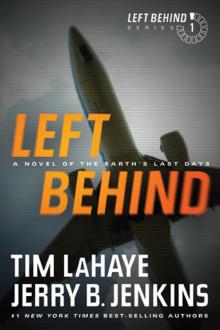 Left Behind: A Novel of the Earth's Last Days
Left Behind: A Novel of the Earth's Last Days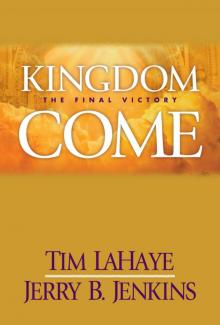 Kingdom Come: The Final Victory
Kingdom Come: The Final Victory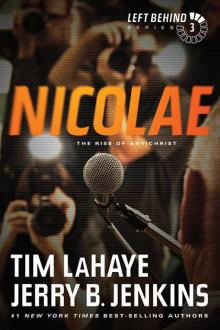 Nicolae: The Rise of Antichrist
Nicolae: The Rise of Antichrist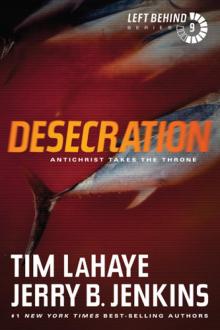 Desecration: Antichrist Takes the Throne
Desecration: Antichrist Takes the Throne Mark's Story: The Gospel According to Peter
Mark's Story: The Gospel According to Peter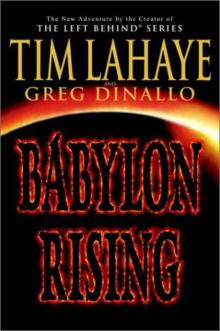 Babylon Rising
Babylon Rising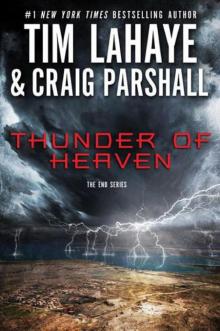 Thunder of Heaven: A Joshua Jordan Novel
Thunder of Heaven: A Joshua Jordan Novel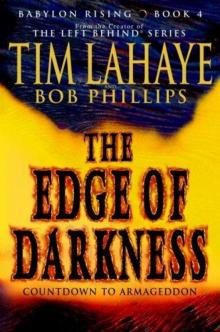 The Edge of Darkness
The Edge of Darkness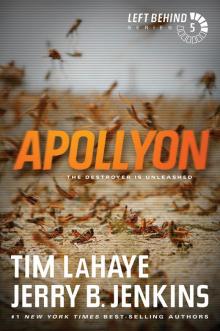 Apollyon: The Destroyer Is Unleashed
Apollyon: The Destroyer Is Unleashed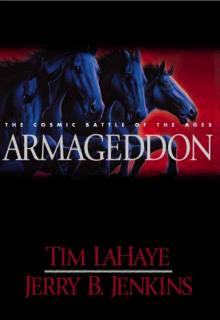 Armageddon: The Cosmic Battle of the Ages
Armageddon: The Cosmic Battle of the Ages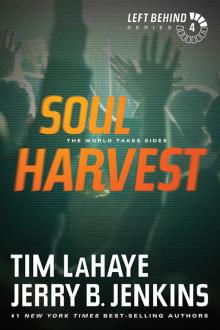 Soul Harvest: The World Takes Sides
Soul Harvest: The World Takes Sides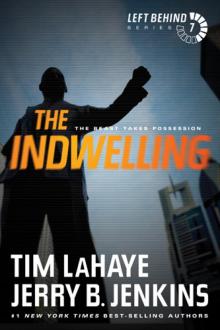 The Indwelling: The Beast Takes Possession
The Indwelling: The Beast Takes Possession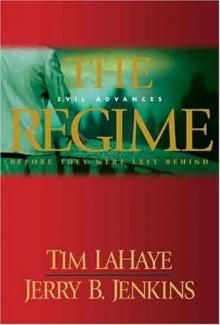 The Regime: Evil Advances
The Regime: Evil Advances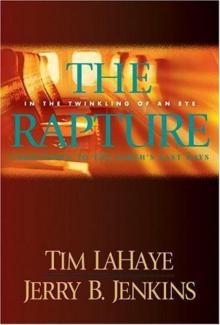 The Rapture: In the Twinkling of an Eye / Countdown to the Earth's Last Days
The Rapture: In the Twinkling of an Eye / Countdown to the Earth's Last Days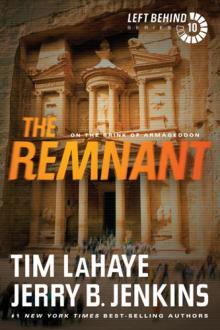 The Remnant: On the Brink of Armageddon
The Remnant: On the Brink of Armageddon John's Story: The Last Eyewitness
John's Story: The Last Eyewitness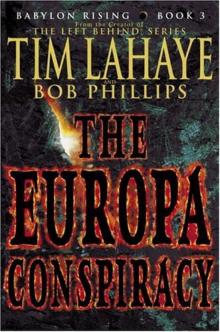 The Europa Conspiracy
The Europa Conspiracy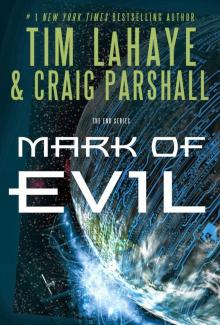 Mark of Evil
Mark of Evil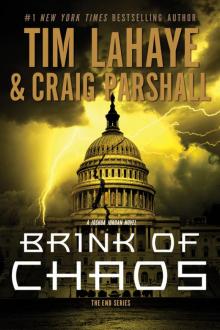 Brink of Chaos
Brink of Chaos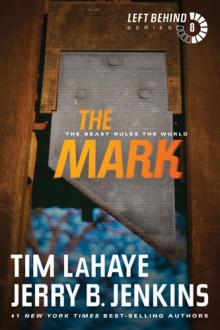 The Mark: The Beast Rules the World
The Mark: The Beast Rules the World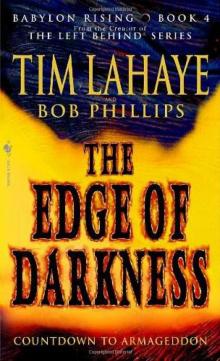 04 The Edge of Darkness
04 The Edge of Darkness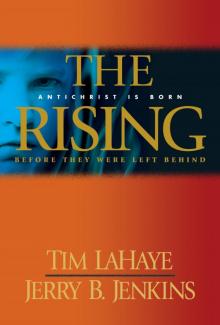 The Rising: Antichrist is Born / Before They Were Left Behind
The Rising: Antichrist is Born / Before They Were Left Behind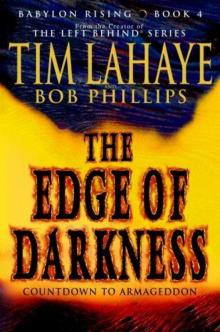 Babylon Rising: The Edge of Darkness
Babylon Rising: The Edge of Darkness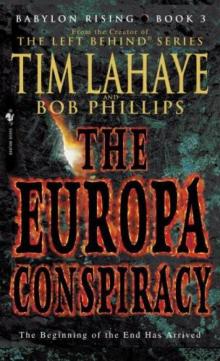 03 The Europa Conspiracy
03 The Europa Conspiracy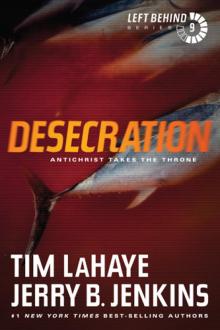 Desecration
Desecration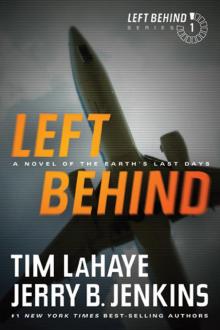 Left Behind
Left Behind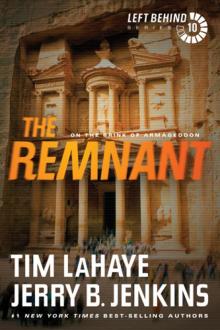 The Remnant
The Remnant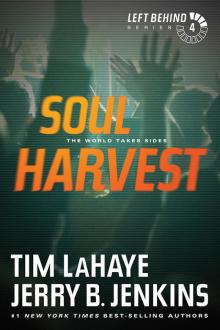 Soul Harvest
Soul Harvest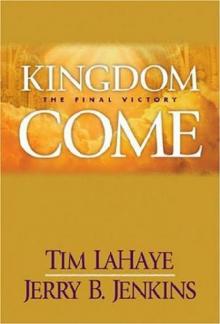 Left Behind Book 13: Kingdom Come The Final Victory
Left Behind Book 13: Kingdom Come The Final Victory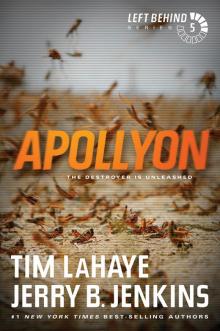 Apollyon
Apollyon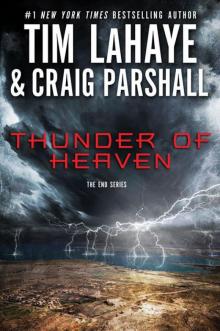 02 Thunder of Heaven: A Joshua Jordan Novel
02 Thunder of Heaven: A Joshua Jordan Novel Glorious Appearing
Glorious Appearing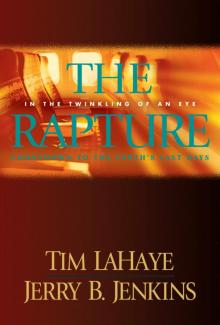 The Rapture: Evil Advances / Before They Were Left Behind
The Rapture: Evil Advances / Before They Were Left Behind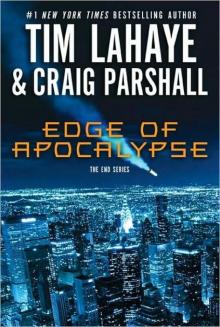 Edge of Apocalypse
Edge of Apocalypse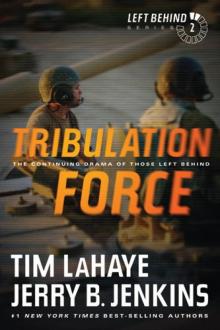 Tribulation Force
Tribulation Force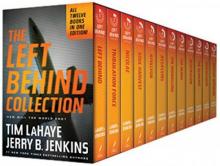 The Left Behind Collection: All 12 Books
The Left Behind Collection: All 12 Books Black Friday
Black Friday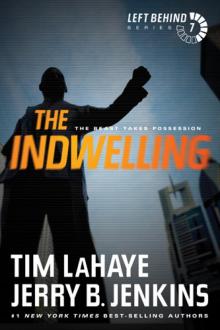 The Indwelling
The Indwelling The Left Behind Collection
The Left Behind Collection